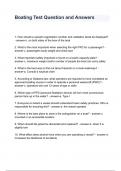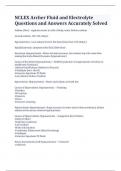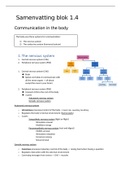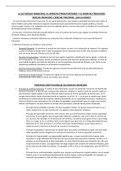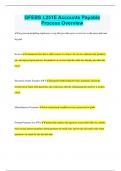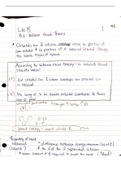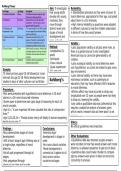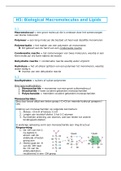Subjective Mens Rea: (Continued)
3. Recklessness
‣ recklessness equates to risk = similar to the element of consequences in Actus
Reus
‣ the accused understood and saw the risk that particular consequences may
occur and proceeded anyways
‣ alternative mens rea element
Some CCC offences requiring proof of recklessness:
‣ Murder
Section 229:
(a)culpable homicide is murder where the person causes the death of a human be-
ing
(i) means to cause his death
(ii) means to cause bodily harm that he knows is likely to cause his death, and is
reckless whether death ensues or not
Mischief
Section 429: “everyone who causes the occurrence of an event by doing an act or
by omitting to do an act that is his duty to do, knowing that the act or omission will
probably cause the occurrence of the event and being reckless whether the events
occurs or not, shall be deemed, wilfully to have caused the occurrence of the
event.”
thus recklessness = intent
Section 430:
(2)everyone commits mischief who wilfully
(a) destroys or damages property
(b) renders property dangerous, useless, inoperative or ineffective
(c) obstructs, interrupts or interferes with the lawful use, enjoyment or operation
of property
‣ Ex. someone pissing on the side of a building (*cannot be charged if it’s your
own property)
Arson
Section 433: “everyone who intentionally or recklessly causes damage by fire or
explosion to property, whether or not that person owns property, is guilty of an in-
dictable offence and liable to imprisonment for life where…”
(a) the person knows that or is reckless with respect to whether the property
is inhabited or occupied.
Ex. burning down your own house is still arson and liable to imprisonment
Ex. leaving a hair straightener on and it burns down the house = not reckless
therefore not liable as the event that occurred was not foreseen.
Section 434: “everyone who intentionally or recklessly causes damage by fire or
explosion to property that is not wholly owned by that person is guilty of an in-
dictable offence and liable to imprisonment for a term not exceeding 14 years.
*THIS IS A STANDARD ARSON CHARGE*
, The distinction between recklessness & wilful blindness:
‣ distinct from one another
‣ recklessness = consequences (AR element)
‣ wilful blindness = knowledge = circumstance (AR element)
Intention (2nd degree murder) vs. planning & deliberation (1st degree murder)
‣ the distinction is important for the consequences upon conviction*
‣ planned & deliberate is NOT impulsive (hence the planning portion, but this plan
does not need to be complex… can be as simple as a plan to buy a gun and drive
to someone’s house and shoot them with the intention of causing death)
Ex. R v. Smith (1980) (Sask CA)
Smith shot his friend 3 times; after the first shot he reloaded his gun and shot
again.
- was the 60 seconds between the first shot and reloading the gun to fire the sec-
ond and third shot enough time to plan? or was it in the heat of the moment?
- Smith had the intention to shoot his friend
- However, in that 60 second time frame he did not have the time to plan & deliber-
ate
- Therefore, he was charged with 2nd Degree Murder
The 3 main Mens Rea elements are: Intention, Knowledge (wilful blind-
ness) and Recklessness. *** HOWEVER, there are additional mens rea ele-
ments attached to specific offences —> “planning & deliberation (1st de-
gree murder) and dishonesty (fraud & theft)***
Dishonesty: (“fraudulent, falsehood, deceit”)
‣ in some offences, i.e. fraud and theft, dishonesty is a mens rea element
‣ must be proven in addition to intention & knowledge
Section 380: Fraud
(3)“everyone who, by deceit, falsehood or other fraudulent means, whether or not
it is a false pretence within the meaning of this Act, defrauds the public or any
person, whether ascertained or not of any property, money or valuable security
or any service,
(a) is guilty of an indictable offence and liable to a term of imprisonment not
exceeding fourteen years, where the subject-macer of the offence is a testamentary
instrument or the value of the subject-macer of the offence exceeds five thousand
dollars; or
(b) is guilty
(i) of an indictable offence and liable to imprisonment for a term not ex-
ceeding two years or
(ii) of an offence punishable on summary conviction,
where the value of the subject-macer of the offence does not exceed
five thousand dollars.
Section 322: Theft
3. Recklessness
‣ recklessness equates to risk = similar to the element of consequences in Actus
Reus
‣ the accused understood and saw the risk that particular consequences may
occur and proceeded anyways
‣ alternative mens rea element
Some CCC offences requiring proof of recklessness:
‣ Murder
Section 229:
(a)culpable homicide is murder where the person causes the death of a human be-
ing
(i) means to cause his death
(ii) means to cause bodily harm that he knows is likely to cause his death, and is
reckless whether death ensues or not
Mischief
Section 429: “everyone who causes the occurrence of an event by doing an act or
by omitting to do an act that is his duty to do, knowing that the act or omission will
probably cause the occurrence of the event and being reckless whether the events
occurs or not, shall be deemed, wilfully to have caused the occurrence of the
event.”
thus recklessness = intent
Section 430:
(2)everyone commits mischief who wilfully
(a) destroys or damages property
(b) renders property dangerous, useless, inoperative or ineffective
(c) obstructs, interrupts or interferes with the lawful use, enjoyment or operation
of property
‣ Ex. someone pissing on the side of a building (*cannot be charged if it’s your
own property)
Arson
Section 433: “everyone who intentionally or recklessly causes damage by fire or
explosion to property, whether or not that person owns property, is guilty of an in-
dictable offence and liable to imprisonment for life where…”
(a) the person knows that or is reckless with respect to whether the property
is inhabited or occupied.
Ex. burning down your own house is still arson and liable to imprisonment
Ex. leaving a hair straightener on and it burns down the house = not reckless
therefore not liable as the event that occurred was not foreseen.
Section 434: “everyone who intentionally or recklessly causes damage by fire or
explosion to property that is not wholly owned by that person is guilty of an in-
dictable offence and liable to imprisonment for a term not exceeding 14 years.
*THIS IS A STANDARD ARSON CHARGE*
, The distinction between recklessness & wilful blindness:
‣ distinct from one another
‣ recklessness = consequences (AR element)
‣ wilful blindness = knowledge = circumstance (AR element)
Intention (2nd degree murder) vs. planning & deliberation (1st degree murder)
‣ the distinction is important for the consequences upon conviction*
‣ planned & deliberate is NOT impulsive (hence the planning portion, but this plan
does not need to be complex… can be as simple as a plan to buy a gun and drive
to someone’s house and shoot them with the intention of causing death)
Ex. R v. Smith (1980) (Sask CA)
Smith shot his friend 3 times; after the first shot he reloaded his gun and shot
again.
- was the 60 seconds between the first shot and reloading the gun to fire the sec-
ond and third shot enough time to plan? or was it in the heat of the moment?
- Smith had the intention to shoot his friend
- However, in that 60 second time frame he did not have the time to plan & deliber-
ate
- Therefore, he was charged with 2nd Degree Murder
The 3 main Mens Rea elements are: Intention, Knowledge (wilful blind-
ness) and Recklessness. *** HOWEVER, there are additional mens rea ele-
ments attached to specific offences —> “planning & deliberation (1st de-
gree murder) and dishonesty (fraud & theft)***
Dishonesty: (“fraudulent, falsehood, deceit”)
‣ in some offences, i.e. fraud and theft, dishonesty is a mens rea element
‣ must be proven in addition to intention & knowledge
Section 380: Fraud
(3)“everyone who, by deceit, falsehood or other fraudulent means, whether or not
it is a false pretence within the meaning of this Act, defrauds the public or any
person, whether ascertained or not of any property, money or valuable security
or any service,
(a) is guilty of an indictable offence and liable to a term of imprisonment not
exceeding fourteen years, where the subject-macer of the offence is a testamentary
instrument or the value of the subject-macer of the offence exceeds five thousand
dollars; or
(b) is guilty
(i) of an indictable offence and liable to imprisonment for a term not ex-
ceeding two years or
(ii) of an offence punishable on summary conviction,
where the value of the subject-macer of the offence does not exceed
five thousand dollars.
Section 322: Theft

